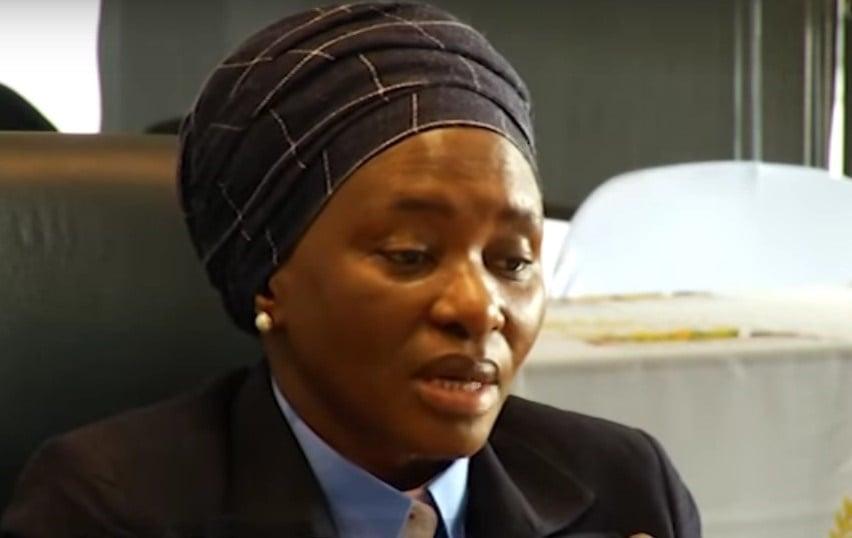Africa-Press – South-Africa. Gauteng Judge President Dunstan Mlambo expressed great disappointment in Judge Tintswalo Nana Makhubele after she took up a position at the Passenger Rail Agency of SA (Prasa), an entity that was cast in a bad light publicly.
“My biggest disappointment was that there were a number of matters in the [Gauteng High Court] division involving alleged corrupt activities at Prasa,” Mlambo said on Tuesday.
Mlambo was the first witness called during the first day of the three-day Judicial Conduct Tribunal hearing against Makhubele.
The Gauteng judge president outlined what transpired after Makhubele was interviewed by the Judicial Service Commission (JSC) for a position on the High Court in early October 2017.
He told the tribunal he knew Makhubele as a silk at the Pretoria Bar but more as an acting judge.
Mlambo said he sent an email to all recommended judges, including Makhubele, informing them that they had to do handovers of all the matters they were involved in to start “clean”.
“When I say clean, [I meant] they have nothing else from an income earning perspective that they are attached to when they start.”
Makhubele was placed at the Pretoria High Court, which she accepted, Mlambo said.
But an issue arose when the duty rosters for January 2018 were issued. Makhubele requested that her starting date be placed on hold because she was involved in “a number of things”, Mlambo said.
Mlambo said Mkhubele requested a meeting, but he asked her to write to him explaining her view on her starting date. He did not receive a response from Makhubele.
Mlambo said he called Makhubele two weeks into January 2018 to follow up on why she had yet to take the oath of office.
A meeting was scheduled where Makhubele informed him that she could not start due to her position at the Water Tribunal, Mlambo said.
“She simply said that she can’t come … I brought up the issue of her interim board chairpersonship at Prasa. I asked if she could not come because she accepted a position based on what I have read in the media.”
Makhubele agreed, he said.
“Her Water Tribunal responsibilities posed no issue. I think the Prasa issue stood in her way in terms of coming to take up the permanent judicial appointment. We realised that we were not able to persuade her.”
Mlambo said he expressed “great disappointment” in Makhubele for accepting the Prasa position, having known from early October 2017 that she had been recommended for permanent judicial office.
“I specifically asked her how you could go and join an organisation featuring in this division where you were appointed as a judge, which is not cast in a good light in the public domain.”
Mlambo said Makhubele stood her ground that she could not start in January and said that she did not want to disappoint “the minister”.
The minister Makhubele didn’t want to disappoint was the then minister of transport Joe Maswanganyi.
The civil society organisation #UniteBehind lodged a complaint against Makhubele with the JSC three years ago, accusing her of gross judicial misconduct following her controversial term at Prasa.
GroundUp previously reported that Makhubele was accused of breaching the separation of powers principle by being both a judge of the High Court and the chairperson of Prasa, a position that falls under the executive branch, as well as of improper conduct while Prasa chairperson.
Makhubele was also named in the Zondo Commission’s report.
The tribunal is led by the retired Judge President of the KwaZulu-Natal High Court Achmat Jappie, retired Judge Seun Moshidi, and advocate Noxolo Maduba-Silevu.
Before Mlambo started his testimony on Tuesday, the tribunal dealt with #UniteBehind’s application to cross-examination witnesses.
The organisation’s advocate, Michael Bishop, said #UniteBehind had been participating in the process from the time the complaint was laid and during all the pre-trial hearings with the understanding that it would be able to participate and question witnesses.
Bishop said they would only ask relevant questions that the evidence leader had not asked.
Jappie said he would not allow cross-examination, but questions would be dealt with on a witness-to-witness basis.”The witness will give evidence, and you are welcome to sit in. The evidence leader will lead the evidence, and if you think there is anything that should be brought out … we would deal with it.”
For More News And Analysis About South-Africa Follow Africa-Press






